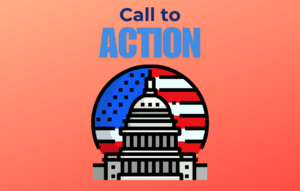3 Phone Calls Will Help Regain and Protect Your OHV Access!
 For the first time ever, six important bills are being considered by Congress that directly support access, reduce restrictive federal overreach, and protect historic roadways critical to OHV use. Below is a summary of each bill and how it benefits our OHV community:
For the first time ever, six important bills are being considered by Congress that directly support access, reduce restrictive federal overreach, and protect historic roadways critical to OHV use. Below is a summary of each bill and how it benefits our OHV community:
Outdoor Americans with Disabilities Act (S.4215)
This bill ensures public lands remain accessible to Americans with disabilities by requiring that land designated for disabled access also allows motorized access proportional to that area. This means OHVs could be an approved mobility tool, empowering those who rely on motorized travel to enjoy public lands equally.
Western Economic Security Today (WEST) Act (H.R. 3397)
The WEST Act would block the Bureau of Land Management’s proposed “conservation leasing” rule, which threatens to sideline OHV users by prioritizing conservation over access. Passage ensures recreation and OHV access remain a priority on BLM lands rather than locked away for exclusive uses.
Ending Presidential Overreach on Public Lands Act (H.R. 5499)
This act curbs abuse of the Antiquities Act by requiring Congressional approval for any national monument designations. It prevents future large-scale monument expansions that could close vast OHV riding areas without local input, protecting access for generations.
Historic Roadways Protection Act (H.R. 7635)
This bill protects thousands of miles of historic roads including RS 2477 roads which are crucial OHV routes—by prohibiting federal agencies from unilaterally closing them. It ensures that legacy access routes remain open for responsible recreation and helps preserve traditional motorized access across the West.
Fix Our Forests Act (H.R. 7983)
Aiming to reduce wildfire risks and improve forest health, this bill cuts through bureaucratic red tape that delays forest management projects. For OHV users, healthier forests mean fewer closures from wildfires and improved access to managed trails and riding areas.
Green Tape Elimination Act (H.R. 6395)
This bill eliminates redundant environmental reviews when states or local entities manage projects on federal lands. By streamlining approvals, it paves the way for faster trail maintenance, facility improvements, and OHV access projects—getting riders back on the ground without years of delay.
CALL TO ACTION – MAKE YOUR VOICE HEARD!
Access to public lands for OHV use is under constant pressure. These bills protect our rights, help reopen closed routes and protect new routes from closures. They also prevent overreaching new regulations that could close off large areas. Now is the time to act.
👉 Contact your Members of Congress TODAY and urge them to support these six bills that protect responsible OHV access and public land use.
🔎 Find Your Representatives Here:
✅ Congressional Member Lookup Tool – Enter Your Address
Together, our voices protect access to the lands we love. Help ensure these bills pass—our riding future depends on it!
Click here to learn how to be effective in your call to Congress